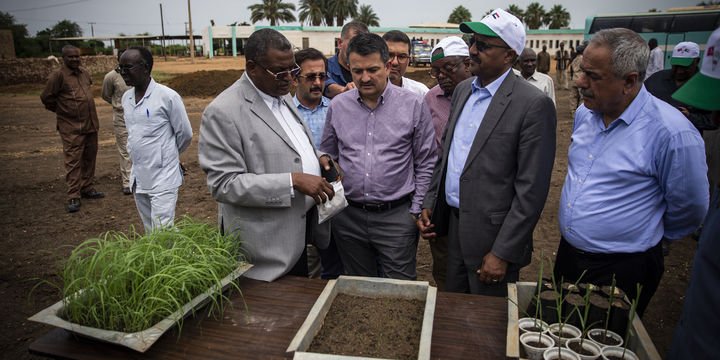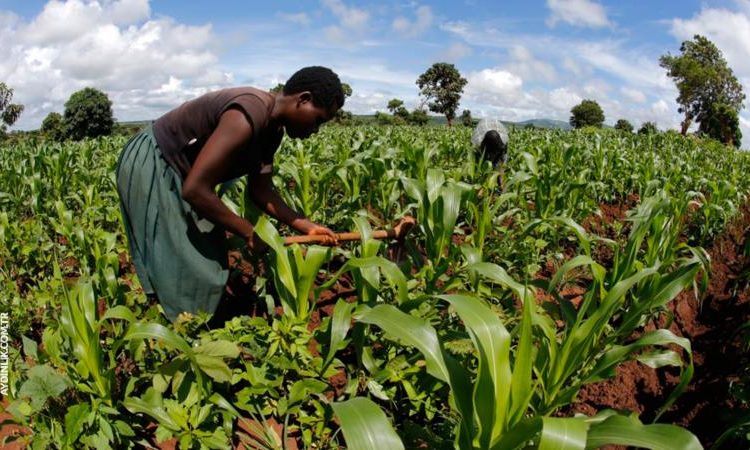Levent Kenez/Stockholm
Turkey has been planning since 2014 to meet a significant portion of its agri-food needs by cultivating farmland leased in Sudan. However, as no land allocation has yet been made to Turkey, no staff is working at the agricultural company established for the project in 2018.
While the opposition claims the fate of the project is still uncertain and that insufficient information has been shared with the public, the Turkish government states that 12,500 hectares of land where a pilot farm will be established and 780,500 hectares to be allocated for the investment of private Turkish companies have not been transferred due to the change of government in Sudan in 2019 and the pandemic, adding that no payment has been made to the Sudanese since the land has not yet been leased.
On April 28, 2014 Sudan and Turkey signed the “Agreement on Bilateral Agricultural Cooperation and Partnership Between Turkey and Sudan,” which went into effect on November 19, 2015.
Within the scope of the agreement, preparations began for the establishment of a joint agricultural company that would run a pilot farm on 12,500 hectares of land in the Abugota-1 region of Sudan.
Turkey’s General Directorate of Agricultural Enterprises (TİGEM) planned to produce cotton, soybeans, sunflowers, sesame, wheat, corn, sugarcane, broad beans, clover, tomatoes, eggplant, cucumbers and peppers on the pilot farm.
The Turkish Sudan International Agriculture and Livestock Corporation was established in 2017, 80 percent of which belongs to TİGEM and 20 percent to Sudan.
Trade registry filing of the the Turkish Sudan International Agriculture and Livestock Corporation:
The founding capital was to be $10 million, of which $8 million would be provided by TİGEM and the remaining $2 million would be given in agricultural products by the Sudanese Ministry of Agriculture and Forestry.
Nordic Monitor has learned that although several delegations from the Turkish Ministry of Agriculture have visited Sudan in recent years, no land has been allocated to Turkey.
According to main opposition Republican People’s Party’s (CHP) lawmaker Bekir Başevirgen, the land on which the pilot farm will be established is not under the authority of the central government, but rather under the administration of states or tribes. Başevirgen says it was already conveyed to the Turkish side that there were villages on the land shown to the Turkish delegation and that the needs of these villages and villagers must be met to establish a business; otherwise, there was a risk that the villagers would loot their agricultural land.
An interesting detail is that, according to stories in the Turkish media conveying the opinions of agricultural experts, the quality of soil on the land shown to the Turkish delegation was not suitable for the desired products, and the infrastructure and amount of water required for irrigation were insufficient.

Başvirgen had previously stated that there are not enough facilities and storage units for the preservation of agricultural products; there are no spare parts for repair in the event of the breakdown of tractors and agricultural machinery; there are serious security problems in the country; and the employees are at risk of being taken hostage or even killed by being raided at any time. “Why did we make such an investment in such a troubled country in which no one has invested?” he asked.
Meanwhile, with the visit of Abdulfettah El-Burhan, chairman of the Sudanese Sovereignty Council, to Ankara, last August, Turkey’s leasing of land in Sudan came to the fore once again. Vice President Fuat Oktay announced that as a result of the meetings held under the chairmanship of President Recep Tayyip Erdoğan and El-Burhan, a consensus was reached on the commissioning of 100,000 hectares (1 million acres) of agricultural land in Sudan for the first stage of the project.
Oktay also said: “Agricultural production cooperation starting with the TİGEM pilot farm project presents an important investment opportunity for Turkish businesspeople in Sudan while at the same time providing Sudan with employment, agricultural technology and food supply security.
Başevirgen on April 5 asked the minister of agriculture what the status of the project was, what activities the company has carried out so far and how much has been paid to the board of directors in a parliamentary question that is still unanswered.
Another opposition lawmaker, Aytun Çıray of the İYİ (Good) Party, stated that company had one employee as of 2020, a janitor. According to Çıray TL 416,695 was paid to six members of the board in the same year.












